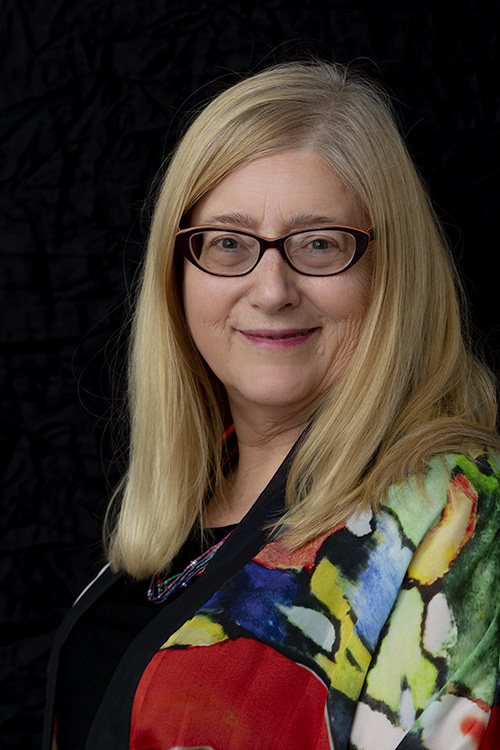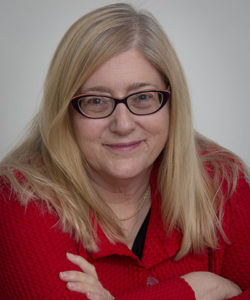Who Says Erotica is Porn?
I got into a minor spat with a romance writer one day. She was talking online about how much writing romance means to her as an older woman, which I totally understand. Just like writing erotica, writing romance for older women has that wonderful ability to bring our stories to life, for ourselves and others, and to push back on the nexus of ageism and sexism that plagues us all—especially during the pandemic.
But then my correspondent said: “Romance isn’t like erotica. Erotica is just a bunch of sex scenes strung together.” I had to demur. Clearly, she is one who says erotica is porn. I suggested she was confusing the definition of erotica and of porn.
Now, I’m the first to admit that there is no bright line between erotica and porn, just like there is no bright line between Spanish and French. If we travelled to the Bay of Biscay and walked across the border from Spain to France, we would find people who speak a transitional tongue with elements of both languages that dates back to a time when travel was much more difficult (Kind of like right now. But I digress). The point is, there is such a thing as French and there is such a thing as Spanish, even if there is no bright line dividing them at the margins. And there is, equally, such a thing as erotica separate from pornography, even if there is no bright line between them.
My correspondent might have trouble seeing the difference because there actually is a bright line separating romance from either erotica or porn. Look at the website for Harlequin, a leading romance publisher, and you will see what I mean.
Romance writers work within a highly structured environment. The Harlequin guide for writers includes a whole list of Romance subtypes, and at the very top is this pronouncement in big bold letters: “All Harlequin series romances must have a happily ever after.” In Romance terms, this means an ending where one woman and one man are together and committed, preferably via matrimony (although the genre has expanded to include LGBTQ happily-ever-afters). Harlequin proceeds to list six different sub-genres, each with its own formula, including Historical Romance, Medical Romance, Intrigue Romance, etc. Some sub-genre formulas actually allow the writer to describe what’s happening in the bedroom, albeit with a focus on the emotional component, not the mechanics. And while there are books about writing erotica, including my own Aphrodite’s Pen: The Power of Writing Erotica after Midlife, there is nothing nearly as proscriptive as the Harlequin formula. Erotica is a free-form art.
To clarify what these different literary countries contain—Erotica versus Romance versus Porn—consider the chart I put together to distinguish these three often-confused genre:
In Erotica, Characters Grow and Change through Sexual Experience Erotica explores our sexuality and the feelings we have about it – both physical feelings of pleasure, and emotional feelings of connection. Erotica deals with the relationships between people that lead to sexual feelings and experiences, and the relationships characters have with themselves and with the physical world, as approached through the senses. Sensuality, emotions, relationships, spirituality, sexual desire, sexual pleasure, how we feel about sexuality, and how our sexuality changes over time, are all within the scope of erotica. The essence is that in erotica, characters grow and change, and erotic experience is part of that process. How is Erotica Different from Pornography? Pornography is restricted to a subset of erotic subject matter focused on the mechanics and the pleasure of the sexual act. It is not concerned with character growth and development through sexuality; nor is the development of relationship central to pornography. Instead, sex itself is the main point. How is Erotica Different from Erotic Romance? In romance writing, the resolution of obstacles leading to romantic relationship is the central objective. In erotic romance, sexuality is key to resolving obstacles, and while there can be personal growth, relationship is paramount. A Happily Ever After ending with two people in love is a hallmark of erotic romance. |
Erotica is all about the development of the protagonist, and her sensual and sexual experience is part of her development. A prime example is Erica Jong’s book Fear of Dying. If you only know Jong through her earlier blockbuster Fear of Flying, you owe it to yourself to read her later book. In it, the protagonist, now in her sixties, comes face to face with her own mortality as she watches the health of her very elderly parents fail. She can make them comfortable but there is nothing she can do to stop the process. Her sexual experiences over the course of the novel are key to coming to terms with her parents’ mortality—and her own. Her serenity at the end of the book is the direct result of her experience of sexuality. To reiterate, it’s not just a bunch of sex scenes. It’s a coming of age novel for older women with sex as an integral part.
Another book that illustrates the concept of character growth through the erotic is the memoir Free Fall by Rae Padilla Francoeur. This is the story of a woman who has remained for decades in a relationship where she is primarily a caretaker to a partner with significant mental and physical health issues. In the relationship, her sense of duty subsumes every other aspect of selfhood. Her beginning exploration of her own needs takes the form of some of the most intense sex scenes of any book I have ever read. This is a book about what it means to be human and what it means to be a woman, and the sex in the book is essential to its purpose.
There are many other erotic stories worth reading for what they tell us about living a human life as a sexual being. Given the wisdom we older women possess, it’s no surprise that a good number of the best erotic stories are by women of experience. From Joan Price’s collection, Ageless Erotica, to Sharon Old’s Odes, you will find reviews of novels, story collections, and poetry collections on my website for your reading enjoyment.
Erica Jong said in a 2019 interview that we live in our bodies and we can’t write honestly if we don’t write about our bodies.
This seems self-evident until you consider the lengths we go to in our puritanical society to avoid connecting with our flesh, in writing as in life. And this is even more true of our flesh after forty.
Jong also once wrote that, as a woman, she stopped being taken seriously as a writer the minute she published a book that contained sex. But the point is, she wrote it anyway. I don’t imagine that erotica will soon lose the stigma of being associated with pornography. But the point is, let’s write it anyway.
And for beginning ideas on writing erotica, please check out my free email based writing classes.
Writing is fundamentally play, and play is about joy. May you enjoy.
Stella



One Response
Loved this article, so definitive, and helpful!